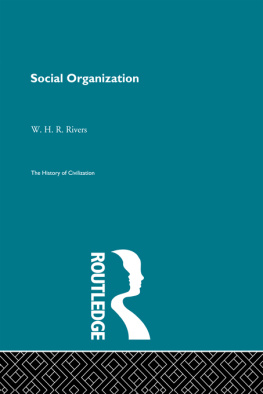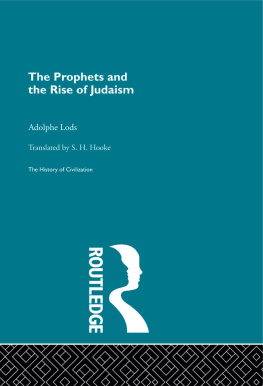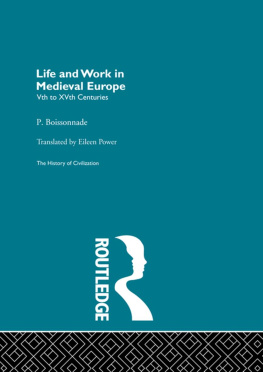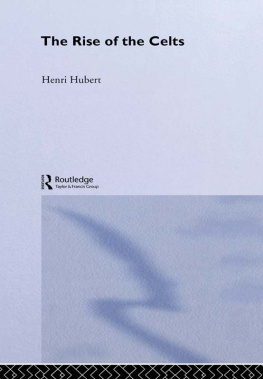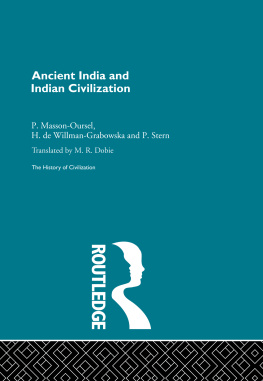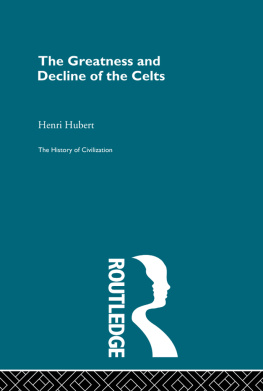First published in 1929 by Routledge, Trench, Trubner
Reprinted in 1996 by Routledge
Reprinted 1998, 2000
2 Park Square, Milton Park,
Abingdon, Oxon, OX14 4RN
&
270 Madison Ave,
New York NY 10016
Transferred to Digital Printing 2005
Routledge is an imprint of the Taylor & Francis Group
1996 Routledge
All rights reserved. No part of this book may be reprinted or utilized in any form or by any means electronic, mechanical, or other means, now known or hereafter invented, including photocopying and recording, in any information storage or retrieval system, without permission in writing from the publishers.
British Cataloguing in Publication Data
ISBN: 0-415-15584-3
ISBN Roman Civilization (6 volume set): 0-415-15613-0
ISBN History of Civilization (50 volume set): 0-415-14380-2
FOREWORD
ROME THE ORGANIZER
THE PERFECTING OF THE STATE
T HE first volumes of this series have enabled us to observe that prehistory and the earliest history, little as they tell us for certain about the wanderings of racial groups, the part played by individuals, the order of chiefs, and contingent things of all kinds, reveal a development of institutionsas of material and intellectual civilizationwhich, although doubtless not regular nor continuous, is at least certain. In laying stress upon these aspects of the past, and in particular upon public and private law, we do not misrepresent history, nor enlarge its scope unduly. It cannot be repeated too often that history has no limits but the activity of men gathered in societies, in its various forms. As a synthesis, therefore, it comprises all those special studies the progress of which involves its own progress, and which have a higher end in it. In respect of sociology, we say once again that, if it has been legitimate to constitute a comparative study of societies, taking the facts of history and the data of ethnology as a basis, the result of these labours must be claimed and assimilated by the science of history as a whole.
It is useful to define society, to determine the institutions which answer to its essential needs and enable it to work, and to distinguish the stages of its evolution; but in reality there are only societies. In order both to check sociology and to make history intelligible, we must weave our sociological generalizations back into the historical synthesis with the other elements which analysis has disentangled and which it is the task of historical theory to enumerate. Sociology, it may be said, emerges from history only to return into it.
Two previous volumes of our synthesis have been devoted to following, in history, the development of that primary functionof a society, its politico-juridical function, which is differentiated by its very progress and allows law to detach itself as a distinct institutionconspicuously so in the case of Rome.
In From Tribe to Empire we saw the beginnings of social organization, the political evolution from primitive clan to rudimentary state, and from that state to empire. It should be noted, moreover, that the difference between the original cell, the clan, and the early state, and that between the state and the empire, consist chiefly in the extension of the human group and therefore of the territory which are covered by the power of the chief, in the systematization of that power. From the beginning the chief has a religious character, which becomes more definite as time goes on
In contrast to the vast unifications of men, thecosmo-cracies, as they have been called, of the boundless plains and tablelands of the East, we find the small political organisms of Greece. There the country, by the mountainous formation which divides it into compartments, and man, by his spirit of independence, combine to create something newthe city. In The Greek City and its Institutions, Professor Glotz has set himself to show how the city, emancipating the individual from family collectivism, grew in power and prosperity by that very individualism which it encouraged; and how, after triumphing over the conservative elements, democracy followed its natural course, broke down the balance of rights and duties, and permitted the individual to make selfish encroachmentswhich would, little by little, destroy the city.
So we have on the one hand territorial empire and hypertrophy of the person of the sovereign, and on the other a tiny state and development of the personality of the citizen. On the one hand, unlimited extension: it has been observed that empires always go beyond their fertile and densely-populated districts, beingobliged to defend themselves against the hungry nomads who besiege their marches, and let themselves be drawn further and further forwards into almost empty spaces. On the other handy narrow limits and expansion instead of extension: through the initiative and daring of the individual, the city sends out swarms, foundingcoloniesto exploit the world and pump it of its riches. In the Empire of Alexander and the kingdoms into which that Empire broke up, cities would still come into being, Greek in origin and tradition, but they would be markets or garrisons, and the city would remain, in the empire or kingdom, a sort of foreign body.
It is quite otherwise with Rome. Here the starting-point is the city, but here the city grows in size. Rome extends the civitas to Italy, to the provinces, to the world, and ends by assimilating cities and kingdoms. Rome becamesRomania.And her institutions, becoming codified, assume a character of universality, an absolute value.
That is the evolution which Professor Homo presents so luminously in this work. In a previous volume of this series, he has explained the formation of the empire; here he gives us the development, the perfecting of the State.
In the Foreword to his Primitive Italy, we have drawn attention to his ingenious attempt to recover, beneath the arrangement of the Annals, the truth of Roman origins. Here he continues the attempt, extracting the complex, evolutionary truth from a tradition which simplifies facts and obscures stages of development. He starts from the Gens, the social germ-cell, and goes through the horde, a group of Gentes, the City, Greek and Etruscan in origin, and the various forms of empire down to the partition, giving a cautious but definite account of fifteen centuries


